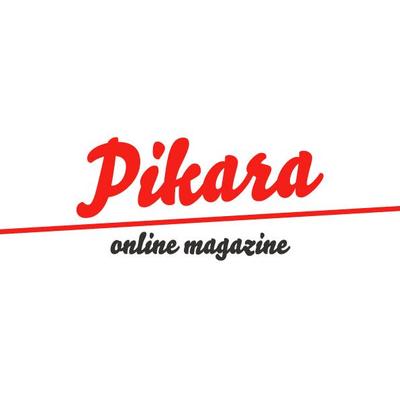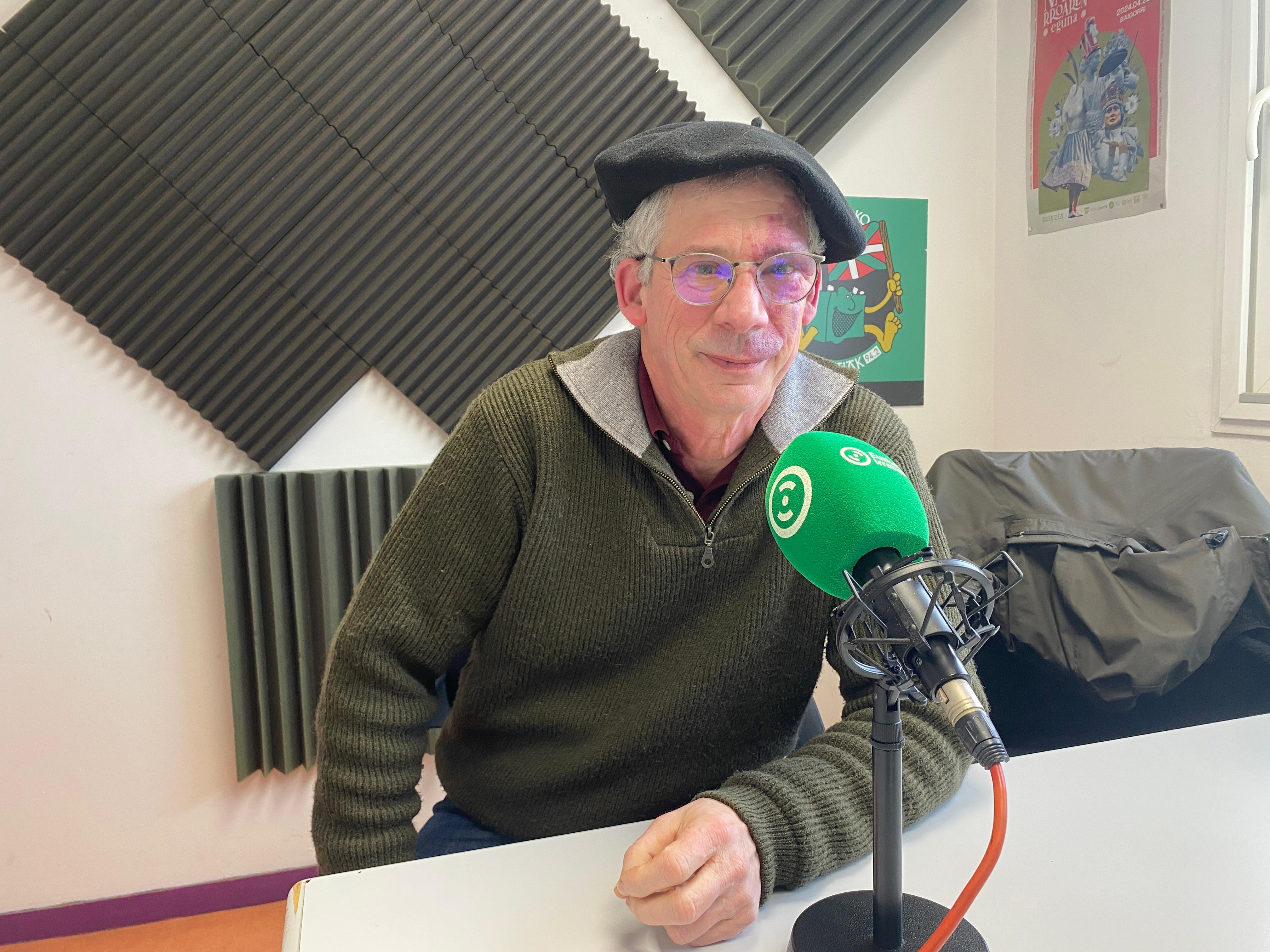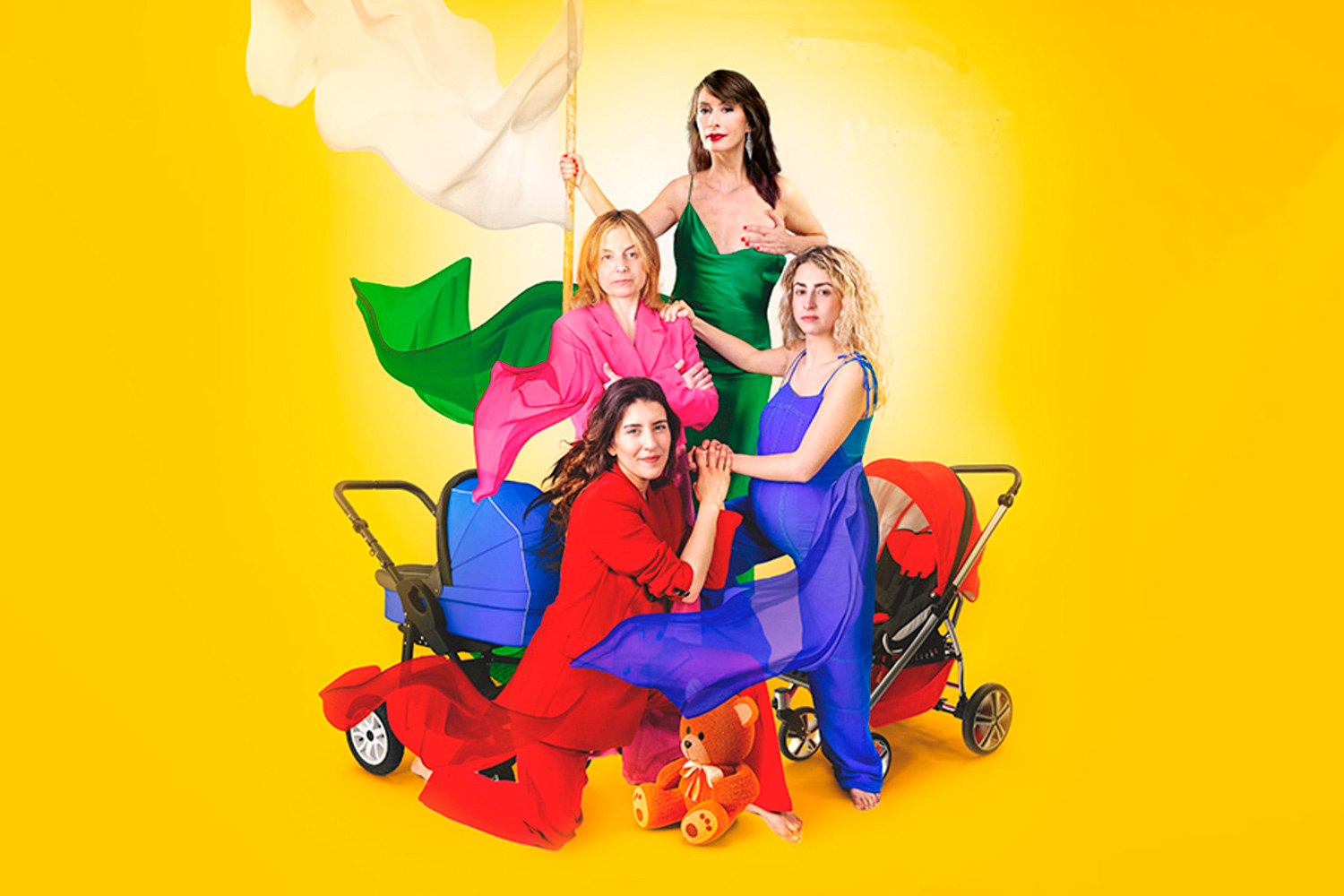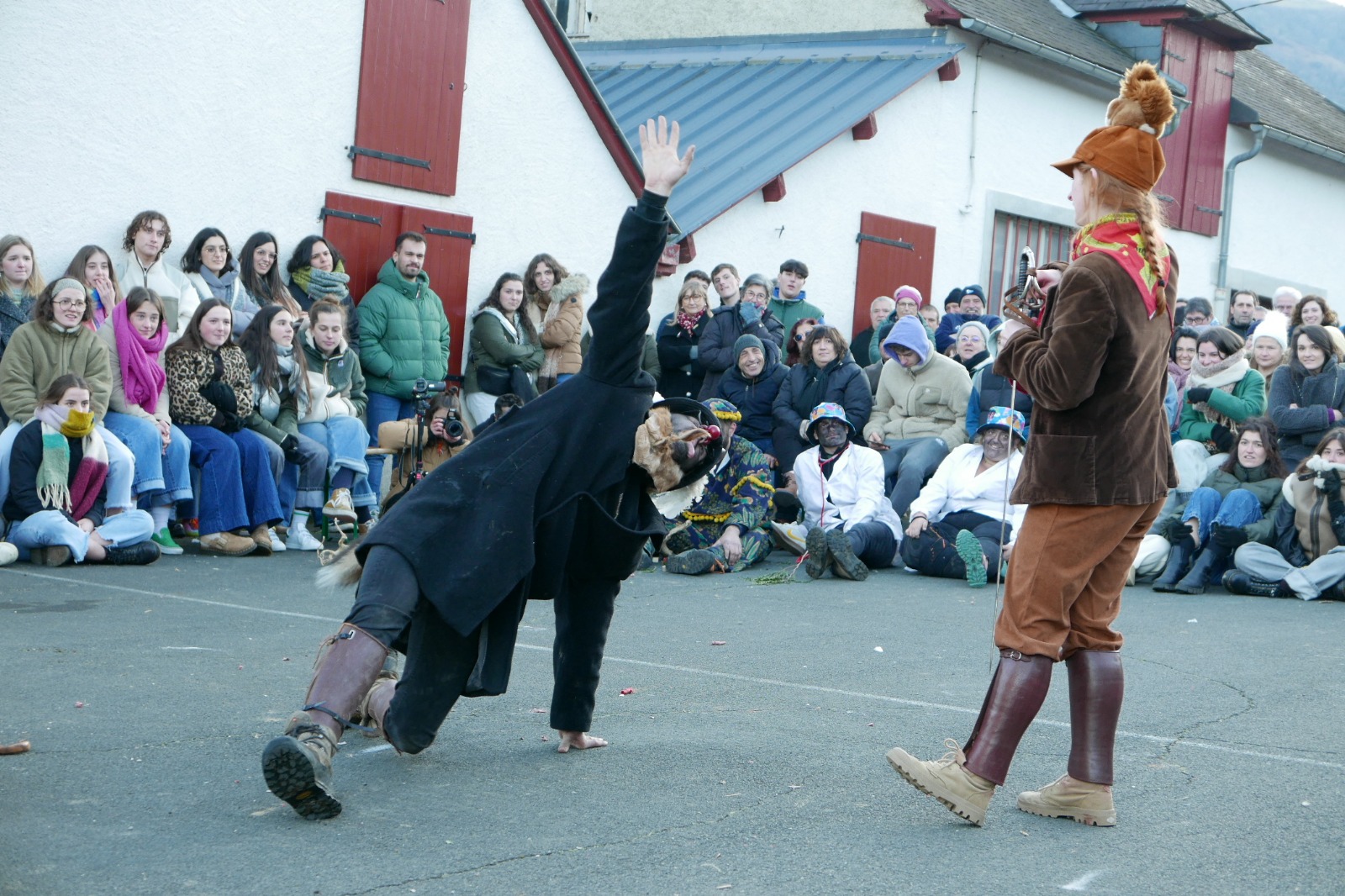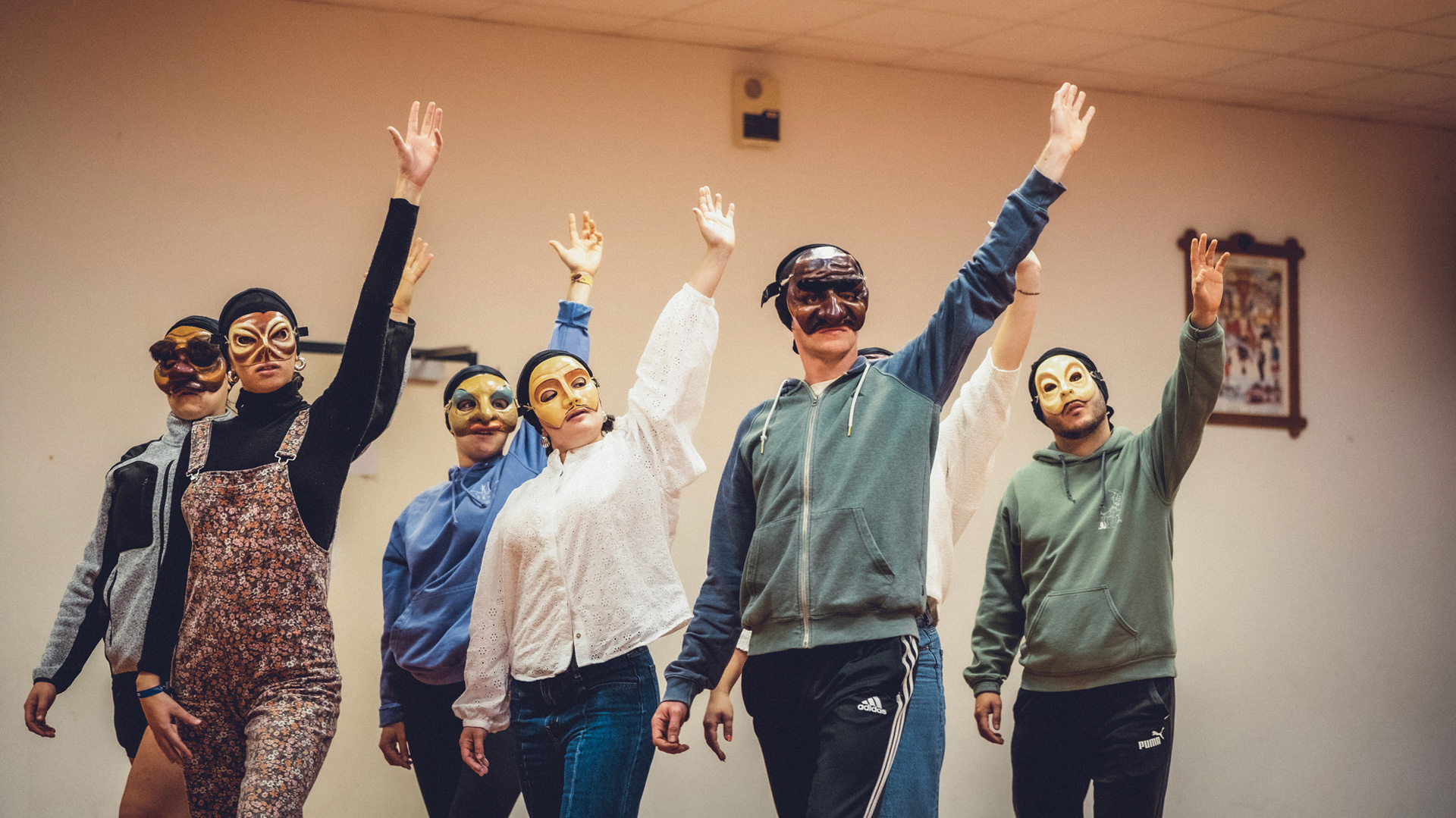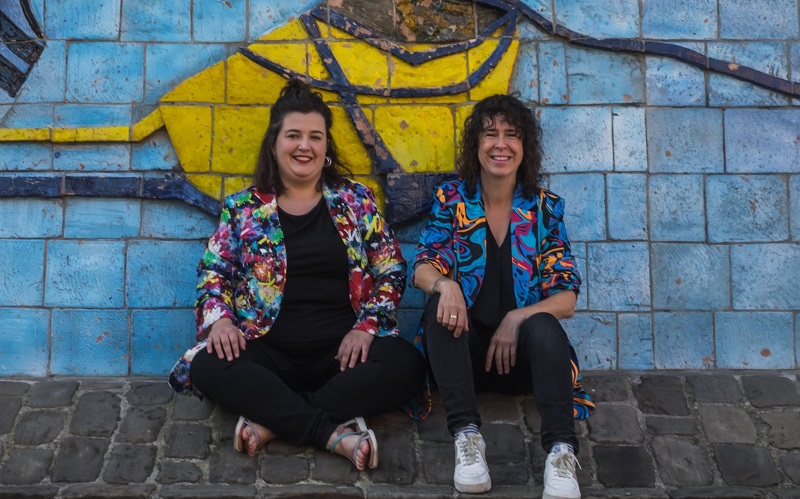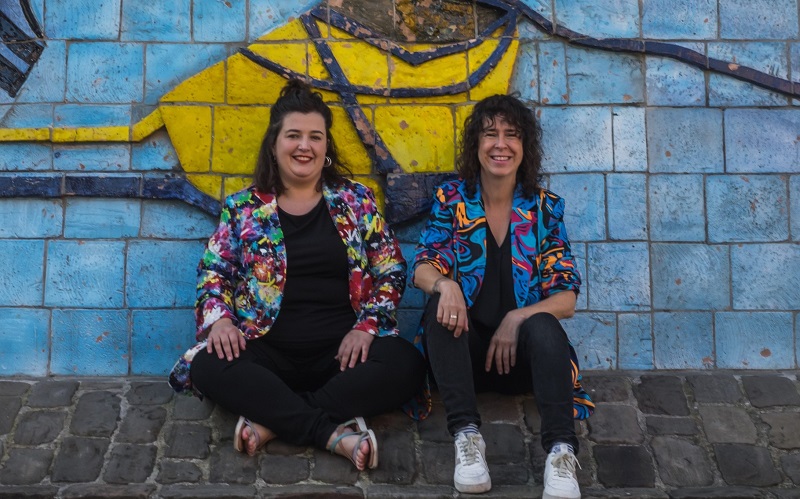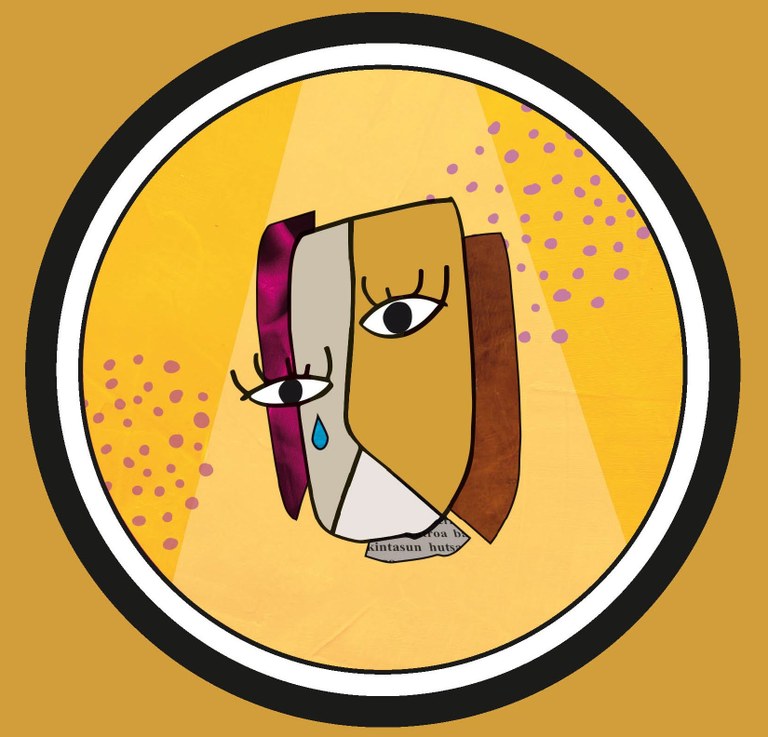“It’s not easy to do things differently in the movies and in the theater. But we can try.”
- Miren Gaztañaga has carried out very diverse works in theatre, cinema, television, as well as in projects related to music or dance. The filming of the film based on the novel by Txani Rodríguez The Last Romantics (Seix Barral, 2020) comes to the Bilbao Tour, Electric Blue: “I am Miren Gaztañaga, actress. So far, then we'll come."

“Apa, I am Miren and I am Irungua, but I live in Bilbao”, so Miren Gaztañaga (Orereta, 1979) would present himself to his friends “looking for sympathy”. And at the portal meeting? “I should change the language,” he says. “Hello, I’m Miren, 3A, and I have a somewhat complicated life, with the somewhat chaotic agenda… I don’t miss you if I’m not in all the meetings (laughter).”
It has been in the performing arts for almost twenty-five years. He has carried out various works in theatre, cinema and television, as well as in projects related to dance or music. The filming of the film based on the novel by Txani Rodríguez The Last Romantics (Seix Barral, 2020) comes to the Bira just finished. And we asked him how he would show up in the Electric Blue. “I am Miren Gaztañaga, actress. From time to time, then (laughter). Thank you all for coming.”
Suppose you're six, seven, eight years old, Look. And it's a Tuesday afternoon, like this evening. Where are you? What do you do? With whom.
I am in my room surrounded by hairstyles and I play different roles: sometimes they are my students, sometimes they are public… I am a unique daughter and, I don’t know if it will be for that, but since I was little I have had the imagination overflowing. I remember myself as a painter, drawing the Peñas de Aia with a leaf glued over the glass of the balcony.
What if we asked you for a photo with fifteen or sixteen years?
Uff (laughter). I went through a lot of aesthetic phases. But I see myself, for example, with very long hair and a big black ACDC t-shirt. And I don't know why, because I didn't listen to ACDC (laughter). What I wanted was a slut from Aitor Gorosabel. Your ta gar. Winter. I have it. We followed them. I remember a very bright, dreamy adolescence. The hostile came later, at the age of twenty.
Hostile?
Yes. I told my mother that I wanted to learn Dramatic Art without knowing what it was like to be an actor, and she said: Look, that's not a career... So, I chose the one that came closest to him as a name cow. Fine Arts. And I came to Bilbao, and I started to see myself with another perspective, to become aware of a lot of things -- and it was a very powerful rupture. It was breaking the egg and coming to Bilbao. At the time, I met the theater. I saw that there was a course in the UEU, run by Lipus, and there I started with nineteen years. Then I entered the Imaginary Theater, and the truth is, I learned a lot of ex-officio. And life.
Lipus, Olatz Beobide and Maddi Goikoetxea have recently been interviewed in Berria. Among other things, it was said that the Basque theatre depends on the subsidies of the Basque institutions.
Yes, it is true. But you are not going to ask me a panoramic question about the general situation of the Basque theatre, right?
No, no. Quiet. I also start to sweat when they ask me about the possible futures of what is Basque…
I've told you this just in case (laughter). Because I'm not comfortable making global readings, horizontal thinking is not my favorite place. I feel like I have to say revolutionary things, and I get nervous. I enjoy more with vertical thinking: taking a point and delving into it. So I feel things closer to me, and that perspective is more interesting to me.
“You never know, but my choice, at the moment, has not been to create a company of your own, I’ve been more with others. I have tried to introduce our proposals into the structures of others, that is true.”
So I'll ask him about yours. What working conditions have you had so far?
There has been everything. When he was making ashes (doll lab Artedrama, Le Petit Théâtre de Pain and Dejabu, 2010), for example, he was in five works at the same time. Tired. I couldn't get there. And all of a sudden, where Goenkale offers me. And I said, well, it's not romantic at all, it's a wrestler, but it's really good for me, both economically and vitally. I see it clearly from the current perspective: the work reality I was living was no longer doing well, I needed a change. And I did. And I learned a lot, I met a lot of new colleagues. In the meantime, I have also worked with several companies and I continue to do so. When I've worked on personal creations, I've been much more precarious, because I've faced work in a more improvised way. You never know, but my choice has not been to create a company of your own, I've been more in the hands of others. I have tried, yes, to introduce our proposals into the structures of others. One of them was the closure of the Love we made Eneko Sagardoy and I (Arriaga Theatre, 2021). It was a beautiful job. In recent years I have done so at Arriaga and conditions are better than elsewhere. In any case, our reality can be very changing; I have friends who have had to ask for a loan to carry out a work, for example. It's the choices themselves, strategies to move forward. It's not easy.
A parenthesis, Look. You've talked about Goenkale, and all of a sudden, I've seen you dressed as a nun. And falling in love. And leaving the convent. It was your character… You inés?
Ines, goddess of fertility (laughter). Imagine that I made a Basque version of The Hawthorn Bird! I, when I was little, went to church every Sunday, I made communion… And then I made compost with all that (laughter). Yes, yes. I put my habits on and we were at the Zumaia Convent. No nun and Miren Gojenola to a superior mother. Awesome! In Goenkale, I learned what it is to be in front of a camera. Goenkale and Martina.
I didn't remember that. Look at Gojenola was “Amaia” for us. Did you have more than one character?
Two! It happens in many series: you've had an accident, you've had surgery on your face, and now you're another person. In Goenkale, sometimes those changes occurred without justification: before you were Amaia, you are now a nun. Pam! It was a fantasy. For me the double, because at that time I was also doing Stereo (performance personal, 2009): for those who saw me on television it was a nun and for those who saw me on stage, a body that freely explored the limits of femininity and masculinity. The combination was brutal.
I remember. One day you appeared in Kursaal, with mustache and black goggles. I think in 2014.
Look, this will make you graceful. My mother, when she saw Stereo, said to me, What do you do with Torrente? (Laughter) And I didn't tell him I would participate in the Bertso Eguna. But they gave it on television right when my mother spoke on the phone with my aunt. And her aunt said to her, “Do you look?” And the mother said, “What a shame”… And I joyfully (laughter)!
“For me, the creative process is a drift in itself; I usually build the narrative about the process afterwards.”
Until then you worked as a team, only you at Stereo. Until then, the more conventional characters have incarnated in the Stereo beyond the norm. A second break in your trajectory?
Yes. But, in this case, wanted. Partly because I needed to work on my own, freer. And on the other hand, because I had something very inside, very visual, that I wanted to explore and that I had no place in the characters that I had played until then. What I wanted was to explore the limits of my identity and, there, I had two references. One, a German: Claude Kahun. I had some very powerful, androgynous photos, and I got really drawn when I met her in the race. And the other, Angelica Liddell. I think it was the first woman I saw to play the role of a man and it gave me a big impression. I had a monologue, Ricardo's year, about sickness and ugliness, and when I saw it, I said, that's what I want. Working on body breakdown. From intuition. Because for me, the creative process is a drift in itself; I usually build the narrative about the process afterwards. At that time I read books of Beatriz prized, now Paul prized. And I would emphasize, and I would improvise… And in the end I got out that Torrent that gives people a lot of laughter. I confess, though, that it made me feel like Beyoncé (laughter). It had terrible power. It's no coincidence that it's a male character, which carries that force.
I imagine both of you on stage: strong or vulnerable, depending on the day. Also in slices. And in castings, more vulnerable than strong?
Most of the time, yes. They're very powerful. The starting point is already dangerous: I want to like you, I want you to choose. For me, the most interesting thing has been learning to take the reins of my desires. At first, when I was going to the tests, I said the result didn't matter to me. But basically, what I wanted was to be elected. I've taken time to realize everything I wanted. When the opportunity came for me to do the last romantic (David Pérez Sañudo, 2024), I said: “Aber, Look, you want this. Accept, prepare for the tests and if it doesn’t come out, you’ll cry, but take responsibility for your desire.” And in that case, everything went very well. But they're complicated processes, because often you go with your friends, and they're fond of the best, but most of all, you want yourself to get a job… It's not easy.
“For me, the most interesting thing has been learning to take the reins of my desires. At first, when I was going to the tests, I said the result didn't matter to me. But basically, what I wanted was to be elected.”
You will learn about the Kontrako eztarritik test (Susa, 2019) by Uxue Alberdi. It has a chapter on what it's counting: the verses system and society in general, explains how bertsolaris and women have put us in competition with each other. Because we have been substitutable, because we have had less space in the plazas… You can see it.
A lot. Things are changing, but that struggle is also among the actors, of course. It happens like jealousy, you feel it and you say, joe, I'm more cool than that. But it's not. These are very primitive feelings. I remember once we were a friend and I went to a Leiva concert. The thing is, a friend of ours was his corista, and when the concert was over, we met with musicians. A guitarist came out with a claim roll. He sat on the roll, and all of a sudden, a bunch of girls started looking for his gaze. And I came up with precisely that: to be in the conquest of a man. But when I realized, what did I do? He sat down, turned around, looked at the girls and listened to them, talked to them. Those inertias are crap, you have to be careful.
What if we took that turn to your career? Would it be the creation of the Kamikaz collective? I imagine you, Amancay Gaztañaga, Erika Olaizola and the three, turning around the chairs and sitting behind a lot of men.
I never thought that way, but it's a proper picture, yes. Now, it's Erika, Amancay and Iraia who carry the project, and I'm a "companion animal octopus" (laughter). But when we created Kamikaz, we were at very similar times. All three of us were tired of the experiences with different male figures. Toxic inertia is sometimes produced with creative men, even with some women. And we got together to break these dynamics, to share creative processes, to find a safer workspace... Meanwhile, we became friends and now we are still supported, working, in life, in everything. That doesn't mean we don't have conflicts. The difference is that we accommodate what we feel and think and manage problems in a healthier way. I think it's important to demystify safe spaces.
“Everything has been more subtle around me, but sometimes also hard: how are power relations constructed, who is up, who is down, who is allowed some comments, who is not… If you don’t feel at ease in a space, you have to continue to legitimize? It’s complicated.”
When it comes to problems, I imagine that they will also treat people who go beyond everyday work conflicts. For a few years, the Me Too movement has put on the table the power relations that structure the film industry and, in recent months, several sexual assaults have been denounced on the occasion of the Goya Awards, at the gates of the Festival of Cannes… But there will be someone who thinks “here no”, “not in us”.
Well, yes. Also here. What happens is that we call the far easier than the near easier. It costs a lot. I myself, right now, feel like I've lowered the volume. I can only talk about my own experiences, and it is true that I have not suffered any explicit attack of this nature. Everything has been more subtle around me, but sometimes also hard: how are power relations constructed, who is up, who is down, who is allowed some comments, who is not… If you don’t feel at ease in a space, you have to continue to legitimize? It's complicated. You're in a work process, often with friends, and suddenly you see that some limits have been exceeded and you don't know whether to communicate what you feel or not. You already know that you can dynamite certain situations if you open your mouth. And you feel guilt, insecurity. I mean, if I say anything, they won't call me anymore... That's what you think. And yet, you keep thinking about the other: you want to say quiet things, without hurting anyone… But you want to explain what you think is wrong to protect yourself. It's not easy. Others, however, have no problem in taking their place and making their speech. End.
“As we come from the old structures both in film and in theatre, the message is that things cannot be done otherwise. It’s not easy, but I think we can try.”
And conciliation, how is it going?
It was something I really wanted to be a mother, and I'm proud that I went to the age of forty-three. Is it marabilloso? Yes. Very difficult to manage? Also. Our son is still small and the dynamics of work, both in film and in theatre, are very intense. But I have done it and I have done it. Of course, because we have had help. If you're shooting a movie, for example, you have to cancel almost everything. The deadlines are usually very tight, there the money sends... And in the cinema and in the theater, as we come from the old structures, the message is that you cannot do things differently. It's not easy, but I think we can try. The opening hours of some long series start to vary, for example: they have eight hours. Something moves slowly. Let's see.
Regarding age, it is noteworthy that thirty-six-year-old girls continue to see in the roles of 15-six-year-old adolescents. Also the other way around, interpreting older young women.
Yes, yes. In the theatre I would say less, but in the audiovisual field this issue is more savage. When you see a twenty-four year-old girl on the paper of forty, what you think is that there's an error in you, not on the screen. You see how your body changes, your skin changes, too... and you don't know how to take those changes. On the one hand, you want to do it from custody. But, on the other hand, you have inside you a violent look that judges you endlessly. And yes, I also think sometimes I'd like to be Ursula Corberó or Kate Winslet. But I know what's behind that and I try to validate myself. Learning. Reading reflections on non-normative bodies. I believe that more real and varied representations are absolutely necessary.
Do you see any role you would like to play in ten or twenty years? Anyone to your mind?
My most natural way of dealing with works is not to write. What's more, start experimenting. The body. But if I tell you the truth, right now, rather than thinking about a character like that, I'm learning how to bring this dance between work and motherhood. Managing multitasking. It is being a very nice time of work, but this dance… has its own.
I, Look, I don't know how to interpret the finals. The first part of the interview ends here, I don’t know if I should ask for applause, or not…
No, no. Now there are no applause. Now the second part. Now without a table. Now, sitting in front of each other.

Vagina Shadow(iko)
Group: The Mud Flowers.
The actors: Araitz Katarain, Janire Arrizabalaga and Izaro Bilbao.
Directed by: by Iraitz Lizarraga.
When: February 2nd.
In which: In the Usurbil Fire Room.
Duela hemeretzi urte berpiztu zen libertimenduen usadioa Donibane Garazin. Antton Lukuk abiatu zuen mugimendu hori, eta bi hamarkadetan, Ipar Euskal Herriko herri desberdinetara ez ezik, Hegoaldera ere hedatu da.
Arizona
Actors: Justin Garfield and Jon Plazaola...
WHEN: January 26th.
IN WHICH: The New Culture Center. In the square.
-------------------------------------------
The couple Margaret (Aitziber Garmendia) and George (Jon Plazaola) leave Idaho to guard the border between... [+]
AMAK
Company: Txalo teatroa.
Created by:Elena Díaz.
Address: Begoña Bilbao.
Actors: Finally, Ibon Gaztañazpi will account for the details of Intza Alkain, Tania Fornieles, Oihana Maritorena and IRAITZ Lizarraga.
When: 10 January.
Where: Auditorio Itsas Etxea... [+]
Basabürüako ibar eskuineko gazteek lehen maskarada arrakastatsua eman dute igandean, Lakarrin.
By:
Mirari Martiarena and Idoia Torrealdai.
When: 6 December.
Where: In the San Agustín cultural center of Durango.
------------------------------------------------------
The fourth wall breaks and interferes directly, standing and fearless. ZtandaP is a way of counting... [+]
By:
Mirari Martiarena and Idoia Torrealdai.
When: 6 December.
Where: In the San Agustín cultural center of Durango.
-------------------------------------------------
The fourth wall breaks and interferes directly, standing and fearless. ZtandaP is a way of counting from... [+]
We're in chaos. That has been said to us by the French media, which Parliament has brought down the government on 4 December. The fear that political, institutional, social, economic chaos will rage us all in the horde of hell comes to our veins. What comedy we're going to play... [+]



